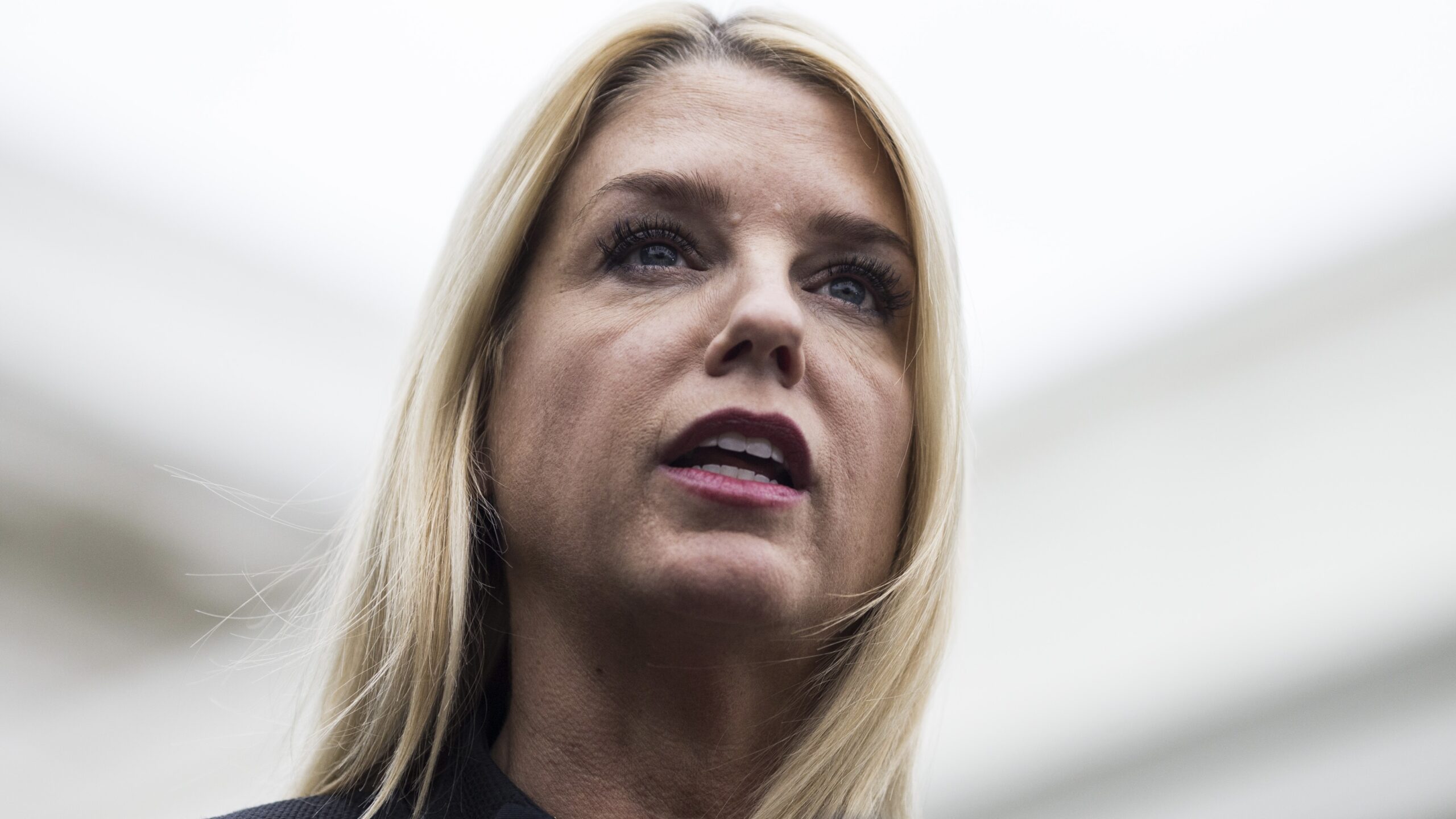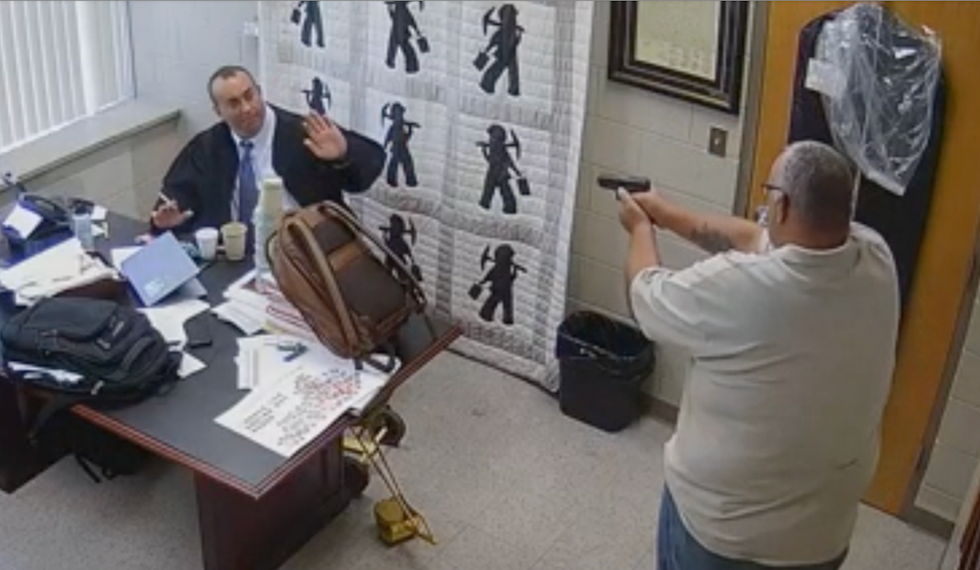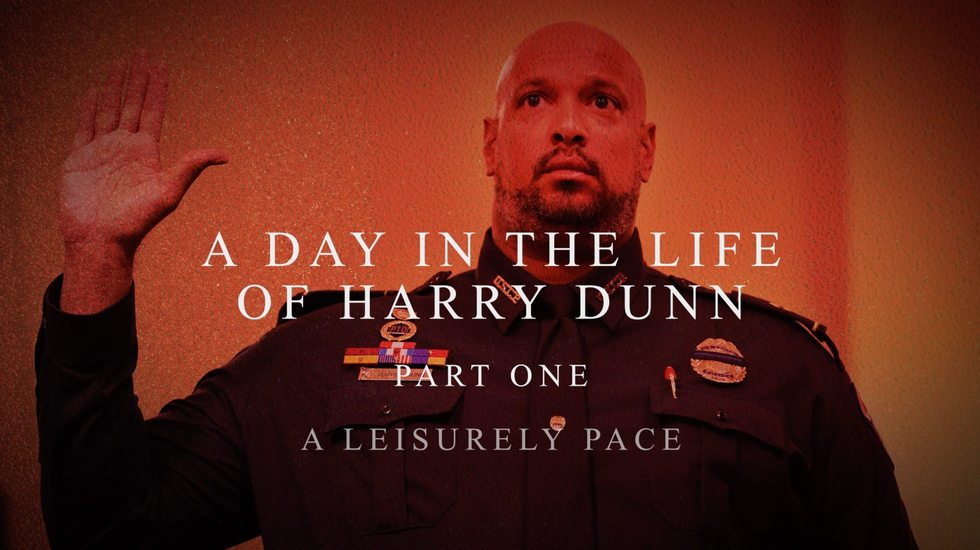Matt Walsh And Ben Shapiro Discuss Why The DEI Grift Matters To Everyone
There’s no denying that Matt Walsh’s new documentary, “Am I Racist?” is hilarious. The Daily Wire podcast host uses his signature brand of deadpan delivery in cringy situations to keep audiences engaged and entertained. But when Walsh sat down with Editor Emeritus Ben Shapiro for a “Sunday Special” episode, the pair spent a good amount ...

There’s no denying that Matt Walsh’s new documentary, “Am I Racist?” is hilarious.
The Daily Wire podcast host uses his signature brand of deadpan delivery in cringy situations to keep audiences engaged and entertained. But when Walsh sat down with Editor Emeritus Ben Shapiro for a “Sunday Special” episode, the pair spent a good amount of time talking about why this topic seriously matters.
They discussed how even though it’s funny that the DEI grifters are so ridiculous, deep down this social contagion has caused pervasive damage across the country. Shapiro pointed out how even though most Americans wouldn’t sign up for a “white guilt seminar,” DEI is still “deep rooted” in society. It’s baked into law, employment policy, and is a key tenet of Vice President Kamala Harris’s policies, according to her.
Walsh agreed that this movie matters precisely because most people aren’t sitting around crying over their white guilt. It’s Walsh’s comedic style that strikingly exposes the toxic view of the race hustling crowd.
“Most people are not true believers like this,” Walsh says. “They want nothing to do with this craziness. And yet the people you see in the film are the ones who are coming up with these programs that are then foisted on normal Americans at their jobs.”
He continues, “So maybe in your free time you’re not choosing to go to something like this. But the problem is that this stuff is brought to you in places where there’s no reason why it would be there. The fact that you just want to work, you’re working a job has nothing to do with any of this, and yet you’re being forced to at the very least, listen to this sort of lecturing, if not actively affirm it in a lot of cases. So this is why we have to care about it, because we really have no choice.”
Later, the pair discussed how the topic of DEI relates to the 2024 election.
“It’s obviously a big topic in this presidential election, and it’s the undercurrent to the presidential election that we are not allowed to speak about,” Shapiro said. He pointed out how hypocritical it is for the Left to make a big deal about Harris being black and a woman while simultaneously accusing people of racism who notice they’re saying it and acknowledge what they’re saying.
“When we call her the DEI president, as you said, we’re just taking them at their own word,” Walsh replied. “The most you could claim is that, well, she was the best black woman who was available — and that I don’t buy either. But that’s the most you could say, because you announced ahead of time that you’re only looking in that particular category of people. So yeah, it’s a DEI president.”
Shapiro pointed out that the result of Walsh’s hit 2022 documentary “What Is a Woman?” led to a fair amount of activism. He asked the podcast host if he saw any solutions for fixing the DEI epidemic which the film could help inspire.
“Well, there are political solutions, some of which, you know, Donald Trump has talked about. Outlawing programs that exclude people on the basis of race, which are already supposed to be outlawed,” Walsh said. “Most of that stuff is flagrantly illegal already. So shutting that down, which a lot of that could be done on a policy level.”
He continued, “A lot of the other changes I think could be made relatively easily with just lawsuits. But people that are affected by this stuff need to file lawsuits. And we’ve seen a little of that happening already.”
Walsh said even with the state of the court system, a lot of these policies only remain in place because they haven’t been challenged in court.
“But then there’s kind of the cultural level too. Similar with ‘What Is a Woman?’ that there were laws that needed to be changed, a lot of those laws have been changed, policies needed to be put in place, a lot of them have been put in place… but then there’s the cultural level… [people] need to not be afraid to say what they know is true.”
“Let’s have a culture that is totally intolerant to that kind of madness,” Walsh says of the impact he hopes to achieve with both films.
“I think we’re starting to see that kind of change culturally on the gender stuff. I think it needs to happen on the race stuff too,” he went on. “Because even if we make all the political changes that we need to make, you still have a problem if you have, like, white people walking around feeling burdened by guilt for things they didn’t do… it’s just a totally misplaced, ambiguous kind of guilt that a lot of these people just carry around, and we have to get rid of that. And it’s like it’s actually kind of a freeing message.”
The conversation ended with speculation on why so many people are tricked into paying large sums of money to DEI grifters. In the film, viewers see how much the “experts” charged for the workshops and seminars – often in the tens of thousands of dollars
When Shapiro asked what the motivation could be, Walsh replied that sometimes it’s as simple as virtue signaling or trying to impress their liberal friends. Some of the people featured in the film probably had more complicated motives.
“You don’t sit around the table and pay money to endure that just as a virtue signal,” he said of the Race To Dinner event he attended with Regina Jackson and Saira Rao that was teased in the “Am I Racist?” trailer.
“I think you’re there because at some fundamental level you really believe it,” Walsh said. “And so for those people, they are true believers. And I think that on this issue in particular, if I were to psychoanalyze, I think a lot of it does come down to guilt and people are carrying around a lot of guilt.”
He added, “Everyone carries around guilt. And part of the problem is that in the past we had a way of understanding the guilt that we all feel. And you understood it in a religious context. You understood it as a spiritual problem and there was also a remedy which changes from religion to religion. But every religion has a remedy for the guilt.”
“As we become a secular society, we don’t have that message anymore,” Walsh said. “People still have guilt, though. And so they’re looking around like, why do I feel this way?”
He said DEI grifters come in with the “answer” to the issue of guilt, offering to atone for it by charging people money.
“Am I Racist?” will hit theaters on September 13. Fans can purchase tickets to a showing near them at amiracist.com.
Originally Published at Daily Wire, World Net Daily, or The Blaze
What's Your Reaction?
































































































